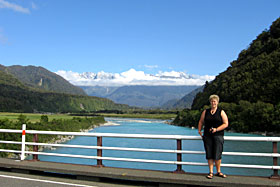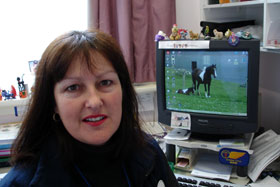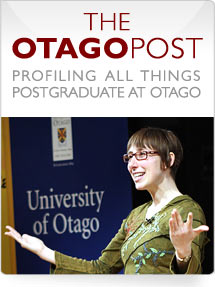 Friday 11 March 2016 12:12pmThe Otago Post issue 9
Friday 11 March 2016 12:12pmThe Otago Post issue 9

Rural nurses Megan Collie and
Rowena Paterson are upskilling at a distance via Otago's nursing postgraduate qualifications
Rowena Paterson and Megan Collie walk down the streets of their small hometowns knowing an awful lot about the locals they nod to as they pass.
Megan is a Rural Nurse Specialist in Franz Josef, West Coast and Rowena is a Rural Practice Nurse in Lawrence, Otago. As such they get to know their community pretty well, and their patients know a fair bit about them.
Megan, who has lived and worked in Franz Josef for three years, says, “The variety in the work, the autonomy and the scope of practice are major appeals in the position, not to mention the beauty of the place.”
Rowena moved from Dunedin to Lawrence in 2003 when she met her husband and began work in the Lawrence Medical Centre. As with Megan, her list of duties is impressively long, ranging from the clinical assessment of people of all ages, to monitoring patients with chronic illness, maintenance and ordering of equipment and supplies, even reception duties and telephone triage.
On top of all their other duties, Megan and Rowena are undertaking postgraduate study through the University of Otago. Megan is completing a Postgraduate Diploma in Nursing, and Rowena is completing the clinical Masters in Nursing with the aim of becoming a Nurse Practitioner.
Director of Otago's Christchurch-based Centre for Postgraduate Nursing Studies Dr Lisa Whitehead says that from 2012 it will begin offering a Postgraduate Diploma in Health Sciences (Rural Nursing) to registered nurses. The course explores the theoretical and practical skills of rural nursing, and the specific demands of working in a rural setting.
Dr Whitehead says, “The rural nursing diploma stemmed from demand in the nursing sector for a study pathway meeting the unique demands of nurses working in rural settings. I've lived and worked in remote places myself and recognise the knowledge and skills nurses need to work relatively independently across a range of acute and chronic health scenarios.”
Rowena believes there are big differences between nursing in a rural clinic situation rather than a larger hospital.
“You must be able to manage emergency situations. There's no army of back-up to help you. You don't have wall oxygen and suction so you need to be prepared. And you're responsible for all clinical matters – if you don't do it, it won't get done.”
Megan says, “The good thing is that whenever a crisis occurs there's always a group of people who will 'have my back' and help out. But, for me, the biggest difference working rural versus 'metro' is the anonymity afforded working in a big place.”
Rowena agrees, “You do get people asking for their results in the supermarket. There's little privacy and people keep a close eye me, even in my own time at social outings!”
“But,” Megan concludes, “the highlights are huge. You have the autonomy to practice at a higher level supported by GPs and colleagues, while being totally responsible for one's practice and the health and wellbeing of a whole community. It's not everyone's cup of tea, but I love it.”
